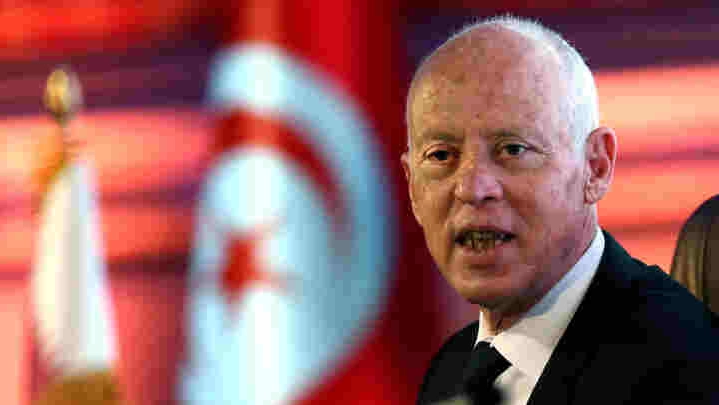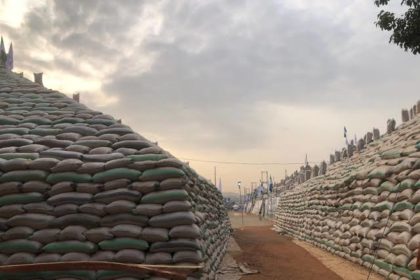Tunisian President Kais Saied announced his intention to seek a second five-year term in office, setting the stage for an election fraught with political tension and uncertainty. Addressing the nation from the arid landscape of Tatouine, Saied framed his candidacy as a necessary step in the “battle for national liberation,” vowing to continue his contentious rule that began with the suspension of parliament in July 2021.
“I officially announce my candidacy for the October 6 presidential election in order to keep up the fight in the battle for national liberation,” Saied proclaimed in a video released by his office on Friday. The 66-year-old leader, who has governed by decree for the past two years, insisted that the “country’s sacred call” left him no choice but to seek re-election. His words, resonating through the sparse crowds gathered in Tatouine, reflected a deep sense of duty and defiance.
Saied’s announcement comes at a time when the political landscape in Tunisia is marred by accusations of corruption, suppression, and legal battles targeting opposition figures. The president’s call for clean campaigns, urging “everyone preparing to sponsor (candidates) to steer off any corruption,” contrasts sharply with the harsh realities faced by his would-be challengers. Many of them are either imprisoned or entangled in legal proceedings that critics argue are politically motivated.
The timing of Saied’s announcement was particularly striking, coinciding with the sentencing of Lotfi Mraihi, a prominent opposition leader and head of the Republican Union Party. On the same day Saied declared his candidacy, a court handed Mraihi an eight-month prison sentence for vote-buying, a charge his supporters vehemently deny. Moreover, the court’s decision to ban Mraihi from running for president for life has intensified concerns about the fairness of the upcoming election.
Mraihi’s imprisonment underscores the broader crackdown on dissent that has characterized Saied’s tenure. Since his dramatic consolidation of power in 2021, which saw the suspension of parliament and the assumption of executive control, Saied has faced increasing accusations of authoritarianism. His government has justified these measures as necessary to root out corruption and restore order, but critics see them as a blatant attempt to stifle opposition and consolidate power.
In Tatouine, a region often neglected by the central government, Saied’s visit and announcement were met with a mixture of hope and skepticism. Many locals view him as a leader who speaks directly to their long-standing grievances and promises to address economic and social issues. However, others fear that his continued rule will only deepen Tunisia’s political crisis.
The announcement has set off a flurry of reactions across Tunisia and beyond. International observers are closely monitoring the situation, wary of the potential for further instability in a country that sparked the Arab Spring over a decade ago. The forthcoming election, set for October 6, will be a critical test for Tunisia’s democracy and the resilience of its political institutions.
As the October election looms, the battle lines are clearly drawn. Saied’s promise to “keep up the fight” will resonate with his supporters, but the shadow of repression casts a long and dark veil over Tunisia’s electoral prospects.




